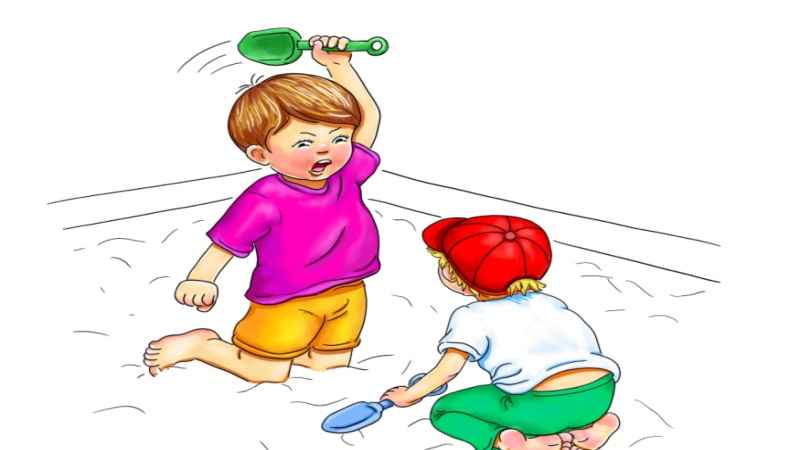
Is your toddler hitting others? Many parents face this challenging situation when their tiny ones interact with other kids in social settings. Hitting someone is not a spontaneous reaction, though it looks like one. Toddlers who hit others go through a mental state of anger and annoyance, often similar to volcanic eruptions.
Hitting is a common phase, but that doesn’t make it any easier to handle. Understanding why your little one gets aggressive and hits others is vital. Let’s dive into the reasons behind this behavior and explore effective ways to develop self-control and emotional regulation in your tiny tots.
Why do Toddlers Start Hitting Others?
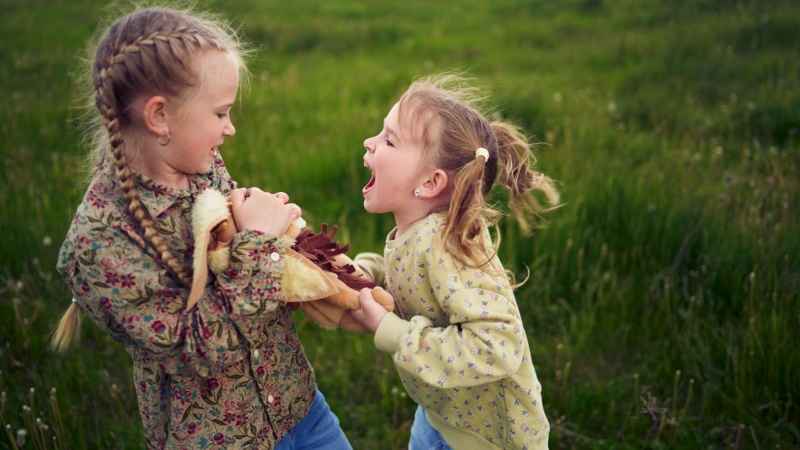
A toddler between the ages of 18 months to about 2 years finds it very hard to communicate their needs and discomforts in words (1). Moreover, most toddlers do not realize that hitting can cause harm to others. Physically aggressive behavior increases from 12 to 17 months after birth. Your little one may thrash others out of poor impulse control.
Sometimes, hitting is due to family tussles such as divorce or separation between parents. In other instances, hitting can also be due to frustration of not getting what they want. Thus, there can be several reasons behind hitting behavior (2), like:
1. Exploring
Your tiny tot’s hitting may not always be intentional. It could be a way to explore how others react to their actions. It’s a way of experimenting with physical actions and seeing what happens next.
2. Trying to Communicate
Toddlers do not have enough verbal skills to express their needs and deepest feelings. Moreover, they cannot also express their frustrations (3). Thus, hitting others can be a form of communication.
3. Self-defense
Toddlers may be hit when they feel threatened or frightened. Even if the threat is not real, their sense of danger can provoke a defensive reaction, causing them to hit as a means of self-protection (4).
4. Having a Bad Day
Just like adults, toddlers also may not feel the same every day. On days, when they feel upset, hungry, or tired, they may feel emotionally overwhelmed. They might be more prone to hitting then.
5. Lack of Self-control
Toddlers have poor impulse control and hitting others could be a spontaneous response that symbolizes upset feelings that they’re unable to control instantly.
6. Seeking Attention
If your tiny fellow feels lonely, or ignored, they may show aggression by hitting you, or their siblings, and even a toy. This is the only way they know that ensures they are noticed.
7. Testing Limits
Toddlers love to test boundaries because they wish to know what behaviors are acceptable and what’s not. Hitting others is one way to gauge how their peers or adults will respond if they act out suddenly.
8. Imitating Someone
Toddlers learn from social imitation (5). If they see their peers or siblings hitting others too often while playing, or at home, they may learn the inappropriate behavior of hitting very easily.
9. Touching Too Hard
Toddlers are too small to realize the amount of physical force needed to interact with others. Their gentle touch may soon turn rough and can lead to unintentional harm to others.
10. Tantrums
Sometimes hitting others can be due to intense emotions such as anger, frustration, or annoyance that the tiny tot is experiencing. Toddlers do not know a better way to express emotions otherwise (6).
11. Inability to Handle ‘Big’ Emotions
Toddlers struggle to handle strong feelings and when overwhelmed by intense feelings, they might just act out, without realizing the consequences of their aggressive actions.
What Causes Aggression in Young Children?
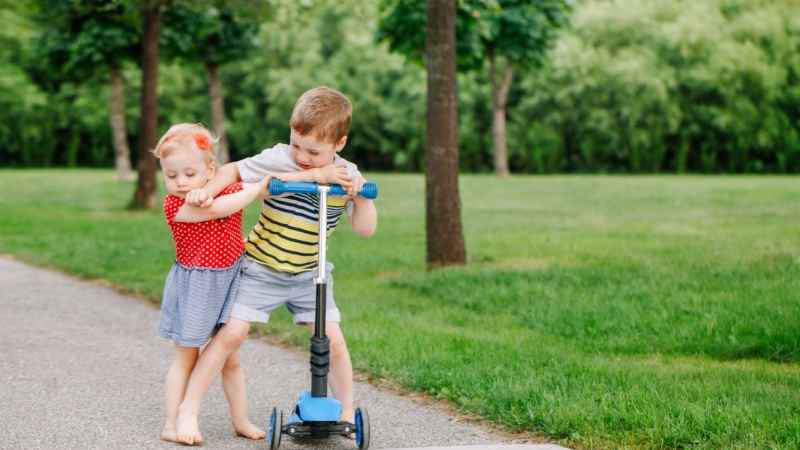
Aggressive behavior in young children and toddlers is a matter of extreme concern for parents and teachers. Careful observation of your little one will make way for a better understanding of what triggers their hitting behavior. Do they hit their peers or siblings? Is their aggression triggered by frustration, anger, or stimulation? How do they express their agitation and aggression?
- May not understand that hitting others can be hurtful
- Change in daily routine can trigger frustration
- Their strong feelings do not know how to be expressed in desirable ways
- By seeing others displaying hitting behavior
- Feelings of being threatened or harmed by others
Do Toddlers Grow Out of Hitting Habit?
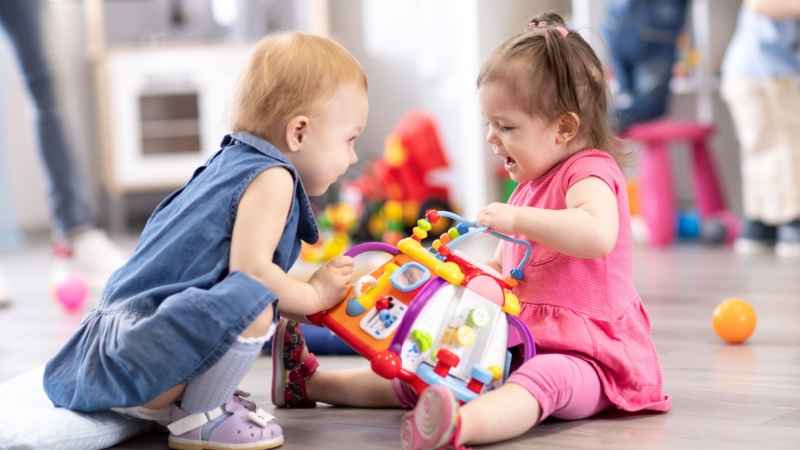
Yes, most toddlers grow out of hitting habits when they develop better communication skills. Moreover, developing emotional regulation and social understanding as they grow older also helps. When toddlers anticipate threats and negative social vibes from peers, they may hit back more often (7). As they grow and learn more effective ways to communicate and manage their emotions, the frequency of hitting usually decreases.
10 Ways to Stop Your Toddler From Hitting Others
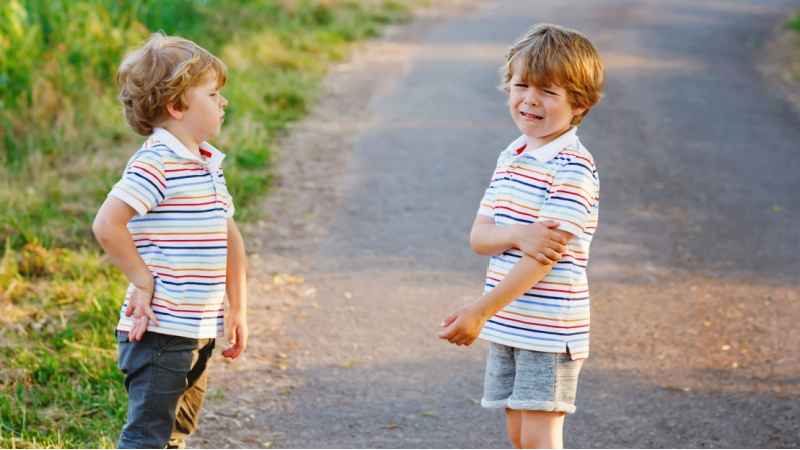
Once you have understood the underlying cause of hitting, you will need to step in without giving in to the urge to punish or banish. Let’s see how:
1. Intervene Immediately
To stop your toddler from hitting, intervene immediately. Calmly separate them, explain that hitting is unacceptable, and offer alternatives like using words or taking deep breaths.
2. Move Your Toddler Away
At the hint of an aggressive breakdown, step into the situation and remove your toddler. If they have hurt someone, make sure the other toddler is taken care of first. Apologize to the toddler and their kin, and refrain from reacting to the situation with long lectures and giving too much attention to your toddler (8).
3. Repair
Attending to the other toddler who just got hurt is always a priority. If the toddler is accompanied by someone, do apologize to both of them. The best way to do this would be to hold your toddler, wrap an arm around them, and tell the other toddler who is hurt that we are sorry.
4. Figure Out The Trigger
Know what causes the toddler to be frustrated and resort to hitting or biting. Is it a toy? Does it always happen with a particular toddler? Is it a situation? Change of routine? Identifying the triggers will help you remove or avoid those situations that cause these outbursts.
5. Be Calm
Refrain from yelling, shouting, and punishing – no matter how hard it is, you have to stay calm and at peace. Speak to your toddler in low tones and calm voice, making it easier for them to confide in you. As a parent, you have to demonstrate self-control and speak in low, soft tones and kind words. Remember, your toddler looks up to you for correct behavior.
6. Empathize
You want to give your toddler a mouthful of advice as to why hitting is bad and not acceptable. But as of now, just some calming words would be enough. Gentle talk and no harsh words at this stage help your toddler feel safe and help them to calm down.
7. Redirect Their Attention
You can engage them in play with toys or allow them to scribble on a piece of paper. Moreover, praise them when they behave well. Redirecting their attention helps them learn alternative ways to express frustration and annoyance (9>).
8. Help Them Understand
When your toddler hits someone, you should avoid succumbing to feelings of embarrassment and bad parenting, instead keep your calm and explain to the toddler that hitting hurts and is painful. They should not hit others and try to explain it in a firm, yet compassionate tone.
9. Enforce Boundaries
As parents, you can set boundaries and let the little one know that hitting is not acceptable. Teach them to use words and gestures to express their discomfort.
10. Don’t Hit Your Kid
Do not even think about hitting your child, though that could be your first reaction when your tot is displaying physical aggression towards anyone. If you hit your tiny one, you are setting an example that hitting is okay when frustrations set in. Hitting them can increase their level of aggression significantly (10).
Coping With Toddler Who Hits Other Kids
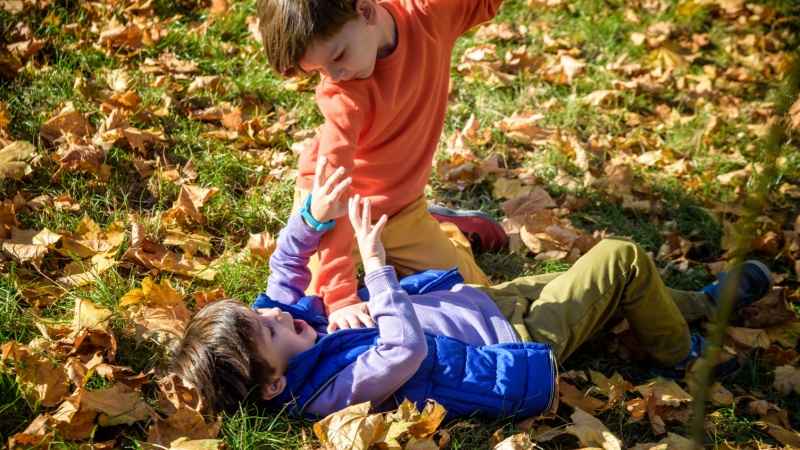
The solution to such aggressive behavior starts with you. If you have been aggressive to anyone in front of your toddler, then immediately stop doing that. It creates a sense of security in your tiny one. Domestic violence itself has a major negative impact on a tiny tot (11).
- Ask the toddler the exact reason for their hitting action and listen to them. Avoid interrupting even if you think it’s a lie. Listen to them and then rationalize their reason
- Discuss with them whether their actions were right or wrong. Bond with the toddler as much as you can, most of the time forming a warm connection is required to solve such issues
- If your toddler melts down and starts crying, comfort them and explain to them that they should avoid
- Never judge your little one
- Address the needs of the toddler
- Make them explore other ways of expressing their displeasure by stomping their feet, walking away, or using words and gestures. Ask them to call for you when in need
Tips to Prevent Toddler Hitting
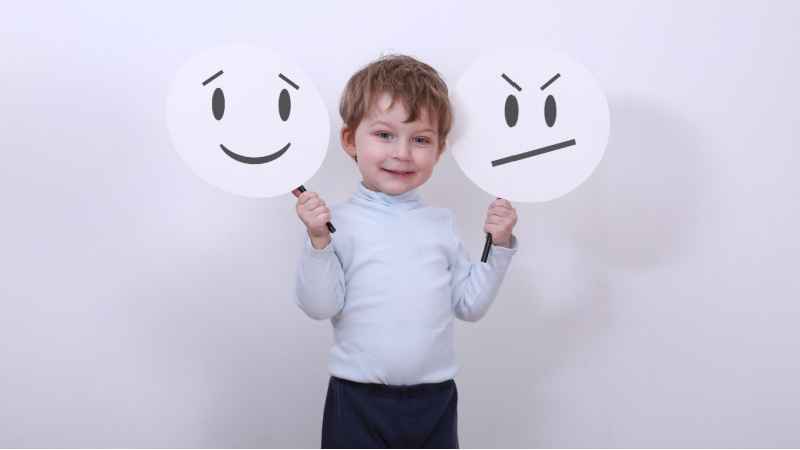
You must understand that toddlers resort to hitting because they do not have the skills to express the discomfort that they might be feeling in any other way.
- Explain Rules: Explain in simple language that hitting others is not allowed as it hurts the other person.
- Model Gentle Touch: Demonstrate how to use gentle touch by touching their friends softly.
- Use Positive Reinforcement: Praise your toddler when they express themselves without hitting, this explains to them that hitting is undesirable (12).
- Teach Emotional Intelligence: Help your toddler express their emotions through words instead of physical actions.
- Create Healthy Routines: Have a consistent routine for meals and sleep that ensures they are poised and never get into the triggers of annoyance.
- Provide a Calm Space: Offer a quiet area where your toddler can retreat and calm down when feeling overwhelmed.
- Identify Triggers: Always observe and address issues that trigger aggression in toddlers. It helps to prevent future incidents easily.
- Protect Them From Getting Hit: Ensure your toddler never experiences hitting from peers or others, so that they never come to know that anger provokes hitting.
When to Seek Help?
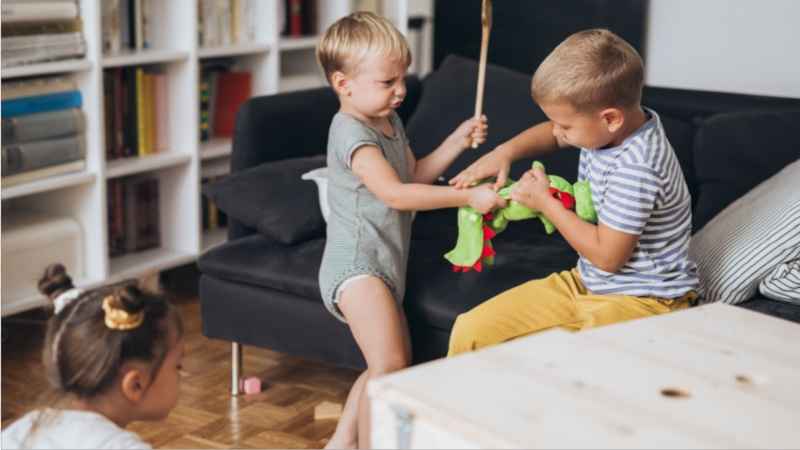
You should seek help from child counselors if the hitting is persistent and intense. If your efforts to curb this undesirable behavior are in vain, you need to cross-check whether any other childhood behavioral disorders are in play. Consult your doctor if the situation is worsening steadily.
Toddler hitting others may continue till the time they develop speech skills. They are most likely to vent their frustration by crying, hitting, or showing other ways of aggression. Sometimes, they take the cues from parents who hit their toddlers when something doesn’t happen in tune with their likes. Hitting is not the response to hitting – it is the cause of even more hitting.
FAQ’s
1. Is Hitting Related to ADHD or Autism?
Hitting can be related to ADHD or autism as both these mental health disorders pose problems with poor impulse control and understanding others’ feelings.
2. How do You Discipline a Toddler When They Hit?
Always ensure calm guidance and be firm when you explain to them that hitting is not allowed. Try to redirect their behavior by engaging them with other things, away from the situation.
3. How Long Does a Toddler Hitting Phase Last?
The hitting phase may last for weeks or months, but there is no set timeline. Most toddlers outgrow it as they develop better emotional regulation and communication skills.
4. Should I Ignore Toddler Hitting?
No, ignoring hitting can lead to more hitting as your tiny tot is not aware of the fact that hitting others is not acceptable. Instead, explain why hitting is wrong and offer other ways to express their frustration.
5. Should You Punish a Child For Hitting?
Punishment may not be effective as it furthers aggression. Instead, focus on teaching the toddler how to express emotions appropriately. Always praise them when hitting doesn’t happen.
6. Why is my Toddler Hitting Others For No Reason?
Your toddler may hit others because they’re either angry or frustrated for a definite reason. Since they cannot use words to express things clearly, they resort to hitting to gain attention.
References
- Dahl A. Infants’ unprovoked acts of force toward others. Dev Sci. 2016 Nov;19(6):1049-1057. doi: 10.1111/desc.12342. Epub 2015 Aug 25. PMID: 26308239; PMCID: PMC4999349. – https://www.ncbi.nlm.nih.gov/pmc/articles/PMC4999349/
- Tremblay, Richard & Japel, Christa & Pérusse, Daniel & Mcduff, Pierre & Boivin, Michel & Zoccolillo, Mark & Montplaisir, Jacques. (1999). The search for the age of ‘onset’ of physical aggression: Rousseau and Bandura revisited. Criminal Behaviour and Mental Health. 9. 8 – 23. 10.1002/cbm.288. – https://www.researchgate.net/publication/229690351_The_search_for_the_age_of_’onset’_of_physical_aggression_Rousseau_and_Bandura_revisited
- Suzanne E. West, Department of Human Development and Family Studies, New York State College of Human Ecology, Cornell University. Parent Pages was developed by Cornell Cooperative Extension of Suffolk County. HD 27 – https://ccetompkins.org/family/parent-pages/challenging-behaviors/when-play-becomes-too-rough
- Deirdre Rooney, Irish Independent – https://www.independent.ie/life/family/mothers-babies/a-child-hits-your-child-do-you-allow-hitting-back-in-self-defence-experts-answer-parenting-questions/36371169.html
- Kirwan, M. (2016). Imitative Aggression. In: Shackelford, T., Weekes-Shackelford, V. (eds) Encyclopedia of Evolutionary Psychological Science. Springer, Cham. – https://link.springer.com/referenceworkentry/10.1007/978-3-319-16999-6_850-1
- Van den Akker AL, Hoffenaar P, Overbeek G. Temper Tantrums in Toddlers and Preschoolers: Longitudinal Associations with Adjustment Problems. J Dev Behav Pediatr. 2022 Sep 1;43(7):409-417. doi: 10.1097/DBP.0000000000001071. Epub 2022 Mar 21. PMID: 35316228; PMCID: PMC9462137. – https://www.ncbi.nlm.nih.gov/pmc/articles/PMC9462137/
- Hay, Dale & Castle, Jenny & Davies, Lisa. (2000). Toddlers’ Use of Force against Familiar Peers: A Precursor of Serious Aggression?. Child development. 71. 457-67. 10.1111/1467-8624.00157. – https://www.researchgate.net/publication/12482727_Toddlers’_Use_of_Force_against_Familiar_Peers_A_Precursor_of_Serious_Aggression
- The American Academy of Child and Adolescent Psychiatry – https://www.aacap.org/AACAP/Families_and_Youth/Facts_for_Families/FFF-Guide/Fighting-And-Biting-081.aspx
- Brightwheel – https://mybrightwheel.com/blog/redirecting-behavior
- Durrant J, Ensom R. Physical punishment of children: lessons from 20 years of research. CMAJ. 2012 Sep 4;184(12):1373-7. doi: 10.1503/cmaj.101314. Epub 2012 Feb 6. PMID: 22311946; PMCID: PMC3447048. – https://www.ncbi.nlm.nih.gov/pmc/articles/PMC3447048/
- The Australian Institute of Family Studies – https://aifs.gov.au/resources/policy-and-practice-papers/childrens-exposure-domestic-and-family-violence
- Southeastern Oklahoma State University – https://online.se.edu/programs/education/med-sped-counseling/challenging-behaviors/positive-reinforcement-at-home/
